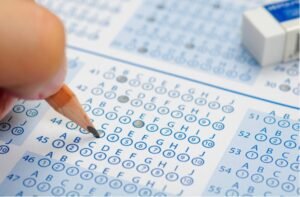Are IQ Tests Reliable Measures of Intelligence?
In the realm of cognitive assessment, the reliability of IQ tests has always been a subject of debate. While traditional criticisms focus on the tests’ inability to measure every aspect of intelligence, there’s an emerging discussion around the evolving nature of these assessments and their role in today’s modern society.
IQ tests have historically been used to predict academic performance and have undergone significant transformations. Today, they encompass a wider range of cognitive skills, including problem-solving, logical reasoning, and memory. However, critiques persist, primarily centered on the notion that IQ tests neglect the critical dimensions of intelligence, such as creativity and emotional intelligence. It is essential to understand that while IQ tests might not directly measure these aspects, they do offer valuable insights into cognitive processing and analytical skills, which are integral components of general intelligence.
One key point of contention is the idea that intelligence is a fixed trait. Modern psychology, however, views intelligence as dynamic and multifaceted, capable of development and change over the period of time. This perspective is central to platforms like IQMetrics.org, where IQ tests are seen as tools for uncovering cognitive strengths and potential areas for growth, rather than definitive measures of a person’s intelligence.

IQ tests have significant applications. In educational settings, they help identify unique learning needs, guiding educators to tailor their teaching approaches. In the professional world, these tests offer insights into problem-solving abilities and learning potential, useful for training and career development. The ability to analyze data, process information, and make informed decisions is increasingly critical in today’s complex world, and IQ tests provide a structured means to evaluate these skills.
Despite several advantages, IQ tests should be approached with an understanding of their limitations. Factors like socio-economic background, educational opportunities, cultural biases, and test anxiety can influence test performance. Thus, IQ test results should be interpreted within the broader context of these factors, considering them as part of a holistic assessment of an individual’s intellectual capabilities.
IQMetrics.org views IQ tests as a gateway to understanding the broad cognitive landscape. The aim is not to label or confine individuals but to empower them with self-awareness and insights that can guide both professional and personal growth. This approach aligns with the contemporary view that intelligence encompasses a variety of skills and abilities that can be developed and enhanced over the period time.
It is crucial to understand that while IQ tests are not exhaustive measures of intelligence, they are reliable tools for assessing certain cognitive abilities. They provide structured insights into our cognitive strengths, which can be instrumental in personal development and decision-making processes. In our pursuit of professional and personal growth, understanding cognitive abilities is invaluable. IQ tests, when used appropriately and in conjunction with other assessments, can contribute significantly to this understanding, creating a culture of lifelong learning and self-development.
Are IQ Tests Reliable Measures of Intelligence?
It is crucial to understand that while IQ tests are
Cognitive Diversity: The Secret to Workplace Efficiency and Success
Are you ready to explore the cognitive diversity within your
How to Use Your IQ Test for Better Self-Improvement
Remember, an IQ test score is a starting point, not




 Quentin Tarantino
Quentin Tarantino James Woods
James Woods Shakira
Shakira 

